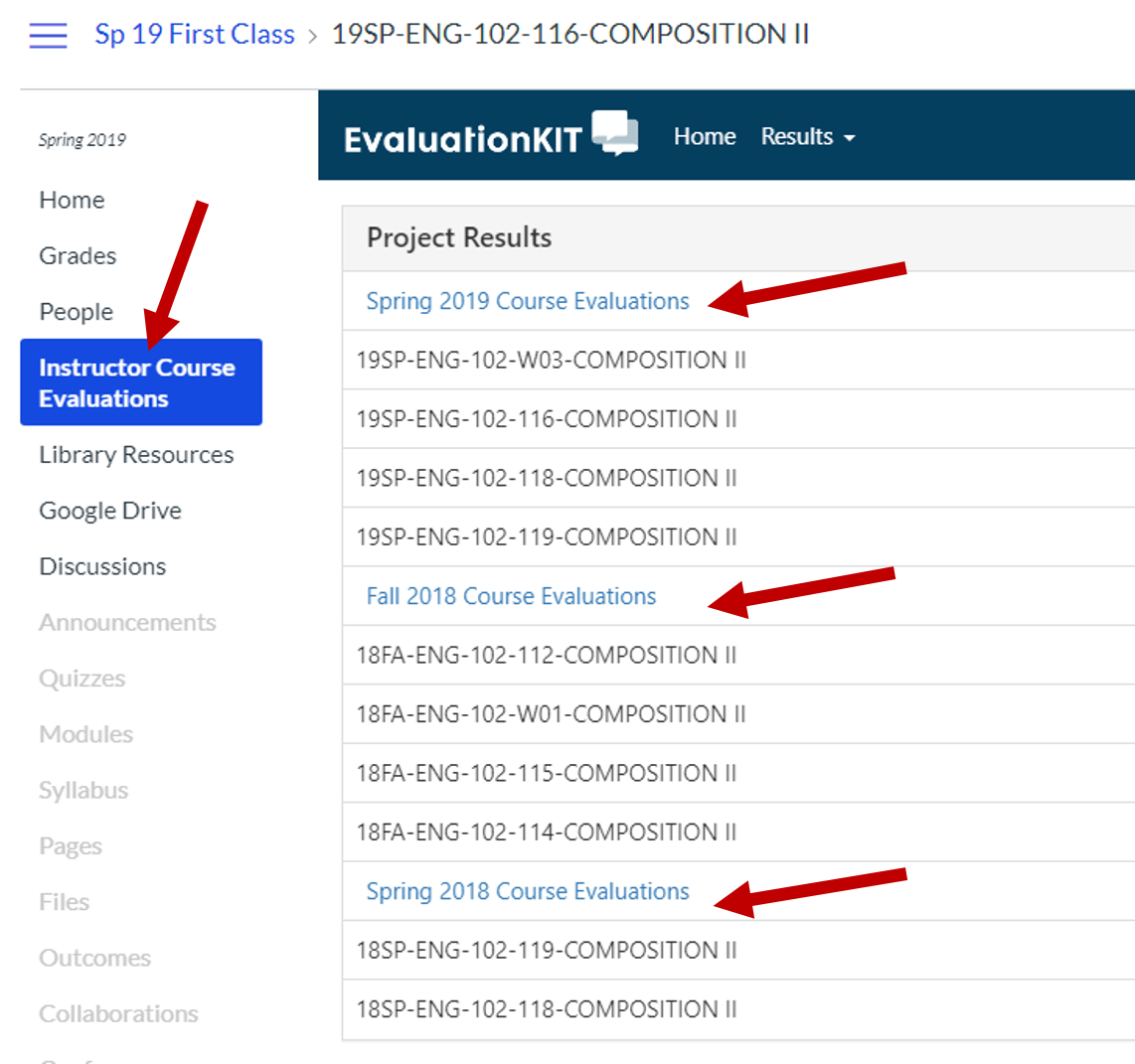This section covers required procedures you will need to follow each semester, as well as, how to locate students’ evaluations for the course(s) you’ve taught.
NOTE: Proctoring applies to fully online courses only.
Test Proctoring is testing overseen by an authorized, neutral individual who ensures the identity of the test taker. Additional information about proctoring methods and locations can be found on the Proctoring at OTC website.
![]() Why it’s important: Simply put, we proctor to ensure our ability to meet our mission of ensuring we strengthen the communities we serve. OTC stands by the quality of our graduates, and as such, we take our responsibility to ensure the identity of students taking our online courses seriously. By requiring both the use of a secure user ID and password, and at least one proctored event per online course, we are confident in our ability to ensure the integrity of our online programs. See relevant policies OTC Policy 2.21, and FDCR.A.10.050.
Why it’s important: Simply put, we proctor to ensure our ability to meet our mission of ensuring we strengthen the communities we serve. OTC stands by the quality of our graduates, and as such, we take our responsibility to ensure the identity of students taking our online courses seriously. By requiring both the use of a secure user ID and password, and at least one proctored event per online course, we are confident in our ability to ensure the integrity of our online programs. See relevant policies OTC Policy 2.21, and FDCR.A.10.050.
Questions related to proctoring can be directed to the OTC Online office at online@otc.edu or 417-447-8200.
Maintaining accurate attendance records and properly administrating student withdrawals is important for OTC to ensure the integrity of our programs and to remain in good standing with the Department of Education and accrediting bodies.
![]() Why it’s important: Recording attendance and correctly reporting student withdrawals allow students to access and receive the correct amount of financial aid. The exact date a student stopped attending your class impacts the amount of financial aid they receive. Accurate attendance records also allow OTC to comply with federal regulations, reduces past-due balances owed by students, and makes it easier for students to return to OTC in a future semester.
Why it’s important: Recording attendance and correctly reporting student withdrawals allow students to access and receive the correct amount of financial aid. The exact date a student stopped attending your class impacts the amount of financial aid they receive. Accurate attendance records also allow OTC to comply with federal regulations, reduces past-due balances owed by students, and makes it easier for students to return to OTC in a future semester.
Carefully review the Attendance and Administrative Withdrawal Resources web page to learn how to properly track attendance and submit an administrative withdrawal for a student. Questions regarding attendance may be directed to Dr. Gavin O’Connor at oconnorg@otc.edu or 417-447-8241
Faculty are required to promptly submit midterm and final grades through the MyOTC portal when they are due. Deadlines for submission are listed in the Academic Calendar.
Instructions for Entering Grades
![]() Why it’s important: Students often need to know a grade in a particular class as soon as possible in order to plan for taking additional courses. Students ability to apply for internships, scholarships, and employment opportunities may be compromised if their transcripts are not up-to-date. Incomplete grade information can also hamper probation review and have consequences for students receiving financial aid.
Why it’s important: Students often need to know a grade in a particular class as soon as possible in order to plan for taking additional courses. Students ability to apply for internships, scholarships, and employment opportunities may be compromised if their transcripts are not up-to-date. Incomplete grade information can also hamper probation review and have consequences for students receiving financial aid.
Questions regarding grade submission may be directed to Dr. Gavin O’Connor at oconnorg@otc.edu or 417-447-8241
Student course evaluations are an additional source of information and feedback regarding teaching, learning and curriculum effectiveness. Each semester, students have the opportunity to evaluate each course they took. Most of the survey items employ a five-point scale of strongly agree, agree, neutral, disagree or strongly disagree. Some of the items require choosing outstanding, average, below average or poor as the answer. Students may also add comments regarding the most and least effective elements of the course.
![]() Why it’s important: The primary purpose for the course evaluation is to improve teaching and learning. It is a tool to provide feedback to instructors and administration concerning student perceptions of the effectiveness of instructional methods and procedures used in the course.
Why it’s important: The primary purpose for the course evaluation is to improve teaching and learning. It is a tool to provide feedback to instructors and administration concerning student perceptions of the effectiveness of instructional methods and procedures used in the course.
To locate student evaluations for concluded course(s), login to your Canvas course(s) and click on “Instructor Course Evaluations” located in the course menu (see below). You will find links to all past course evaluations listed. Click on the desired course(s) to export a report of student evaluations.

Questions regarding course evaluations may be directed to the Office of Institutional Research at 417-447-2648.

